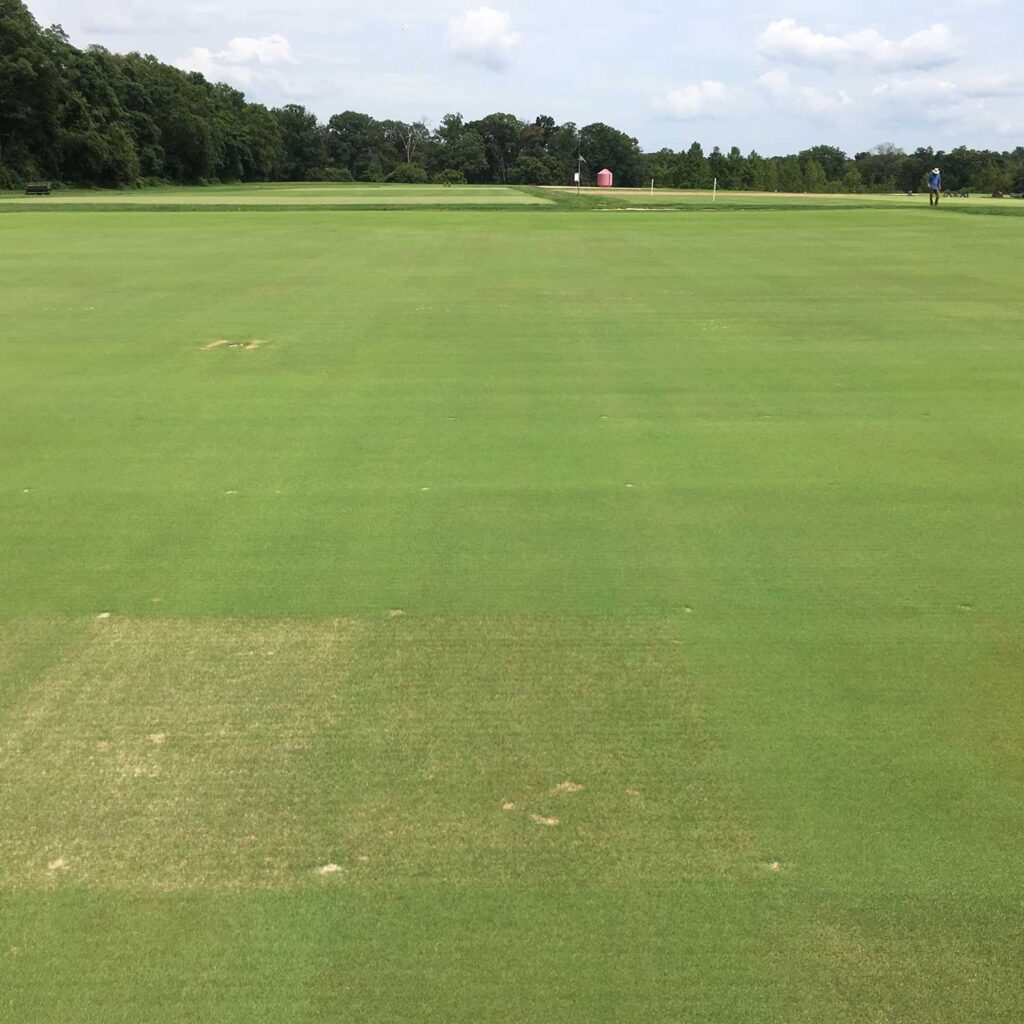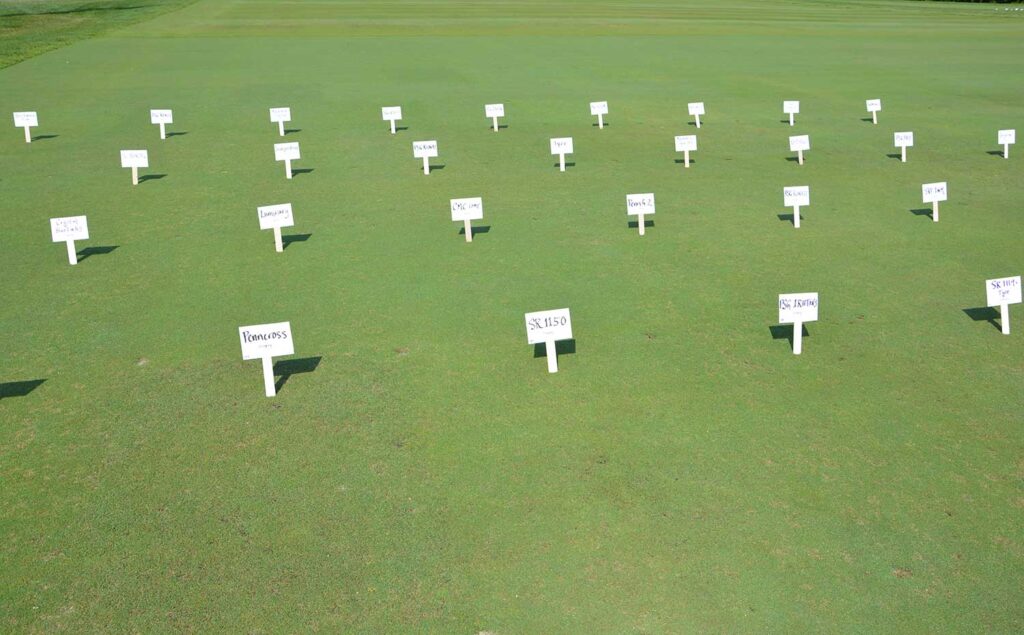Main Content
Professor, Dept. of Plant Biology

Stacy Bonos is a professor of turfgrass breeding in the Department of Plant Biology. Her main research objectives include developing improved, pest resistant and stress tolerant turfgrasses that can be utilized for resource conservation and environmental enhancement in the Northeast and throughout the world where cool-season turfgrasses are grown. The development of improved, genetically stress tolerant turfgrasses is important to the advancement of golf course, athletic field, and landscape management, and will greatly benefit the environment and the public at large. Her research program focuses on integrating classical genetics and genomics-based marker assisted breeding into a historically conventional field-based turfgrass breeding program. Her team has specific research projects on breeding for disease resistance, salt tolerance and low maintenance in numerous turfgrass species. She currently works with 11 different cool-season turfgrass species.
One of her main breeding projects over the past twenty years has been to develop bentgrasses for golf courses. Creeping bentgrass, the main species used on putting greens, fairways, and tees, spreads by stolons and colonizes voids quickly. However this species is susceptible to a number of fungal diseases including dollar spot, brown patch, anthracnose, copper spot and others. Breeding for improved tolerance to these disease has been a concentrated focus of the breeding program. In addition, traits such as wear tolerance, drought and salt tolerance and divot recovery have also been improved. Several new cultivars have been released in recent years with improved quality, disease tolerance and excellent performance in the National Turfgrass Evaluation Program trials. New cultivars released include Piranha, Coho, Chinook, Match Play, L93XD, 777, Barracuda, 007 and Luminary.

